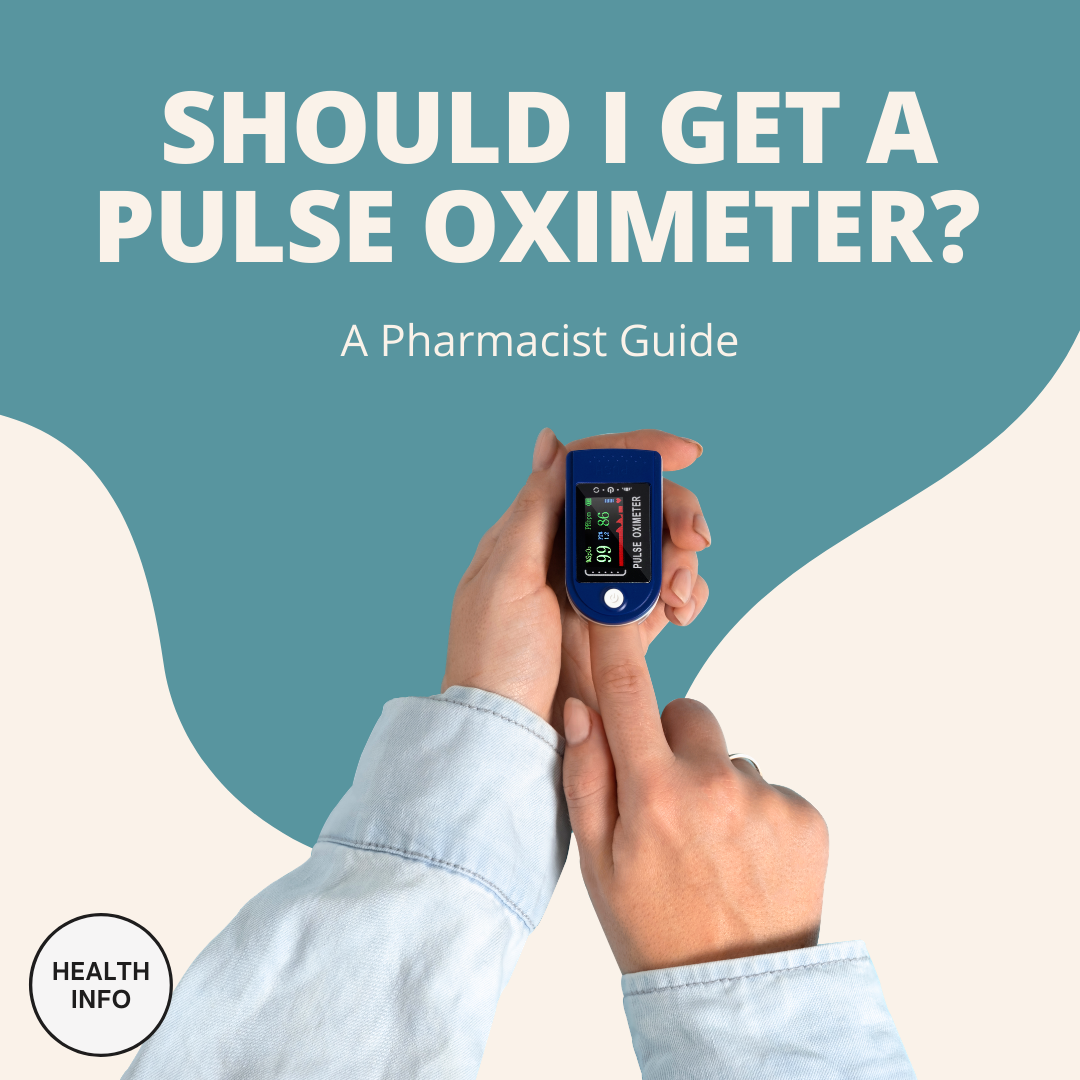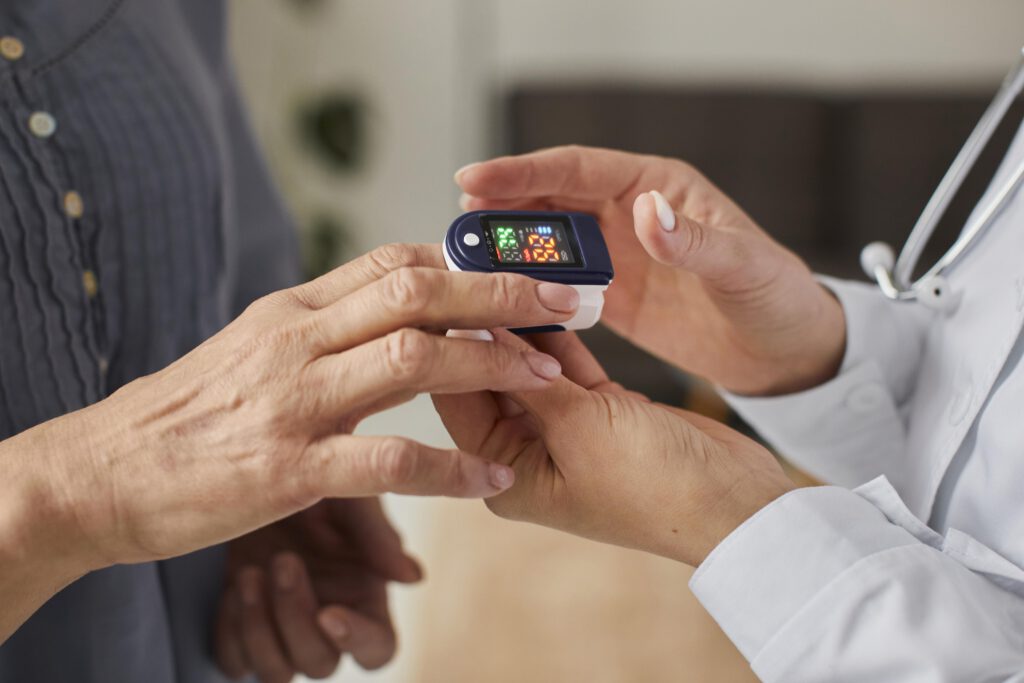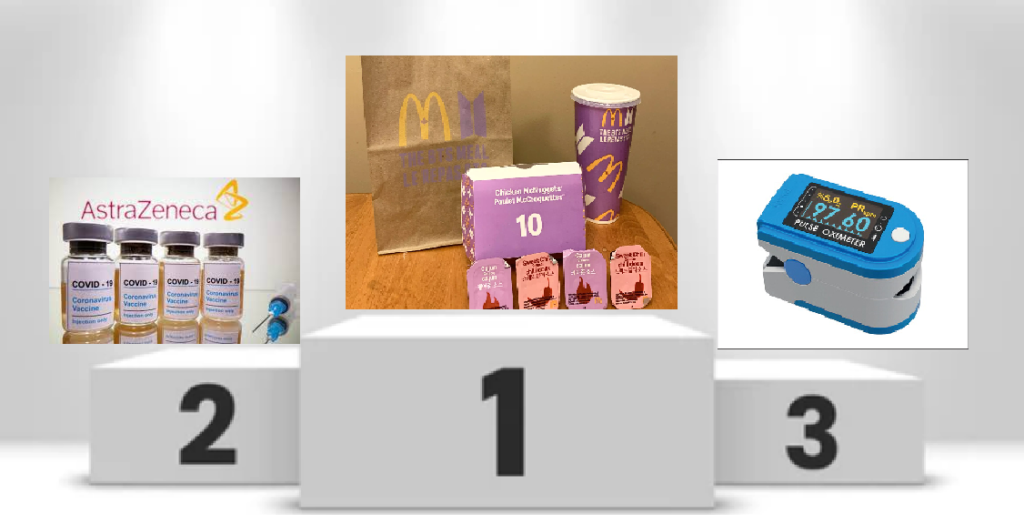- Home
- Health Center
- Health Info
- Should I Get a Pulse Oximeter? – A Pharmacist Guide
COVID-19
Should I Get a Pulse Oximeter? – A Pharmacist Guide


Pulse oximeter is the third most desired thing by Malaysians in May 2021. Bread, toilet rolls and instant noodles were sadly dethroned this wave. If you want to know more about pulse oximeter, you may refer to our previous article here.

In this article, We will talk on hypoxia and the role of pulse oximeters.
What is Hypoxia?
Hypoxia is a condition where the body or a region of the body is deprived of adequate oxygen level. COVID-19 can cause such an issue as it infects the respiratory system. We would expect someone to notice the difference when the body is deprived of oxygen. However, this is not the case. There have been numerous reports on ‘Happy Hypoxia’ where one does not notice until it is too late.
As this article on CNN points out, people might not be aware of the gradual increase in breathing when the lung is slowly ravaged by COVID-19. By the time the COVID-19 patient ends up in hospital, the damage has already been done.
Pulse oximeters may help identify the fall in oxygen saturation before a COVID-19 patient feels any severe symptom. However this is not foolproof. Some people may feel very sick and have good oxygen levels, and some may feel OK, but have poor oxygen levels.
What Oxygen Level Is Considered Abnormal?
A normal level of Oxygen Saturation (SpO2) is ≥95%. The Center for Disease Prevention and Control defines severe illness of COVID-19 in people as taking more than 30 breaths per minute and having an SpO2 reading lower than 94%, on room air at sea level (or a decrease of more than 3% from a baseline reading for patients with chronic hypoxemia, a below normal level of oxygen in blood, specifically in the arteries).
Should You Get a Pulse Oximeter?
The answer is… Depends…
If you are COVID-19 positive or you are suspected to have caught COVID-19:
Having a pulse oximeter is helpful. If you are under home quarantine, a pulse oximeter can provide you with valuable data that you can share with your doctor. A pulse oximeter can alert you when your oxygen level falls low.
If you don’t have COVID-19 but you have other medical conditions:
A pulse oximeter is not necessary. Just to be clear, pulse oximeters do not diagnose COVID-19 in any way. Other conditions such as chronic obstructive pulmonary disease can also affect the SpO2. However, if you want to have one to be on the safe side, you may do it.
If you do not have COVID-19 and you are healthy:
This is controversial. From a public health viewpoint, endorsing everyone to keep one pulse oximeter might cause a shortage of pulse oximeters in the market, depriving those who need it from having one.
References:
- Oxygen Levels, Pulse Oximeters, and COVID-19 – Minnesota Dept. of Health [Internet]. Health.state.mn.us. 2021 [cited 30 May 2021]. Available from: https://www.health.state.mn.us/diseases/coronavirus/pulseoximeter.html
- Sandee LaMotte C. Silent hypoxia: Covid-19 patients who should be gasping for air but aren’t [Internet]. CNN. 2021 [cited 30 May 2021]. Available from: https://edition.cnn.com/2020/05/06/health/happy-hypoxia-pulse-oximeter-trnd-wellness/index.html
- Should You Get a Pulse Oximeter to Measure Blood Oxygen Levels? [Internet]. Health Essentials from Cleveland Clinic. 2021 [cited 30 May 2021]. Available from: https://health.clevelandclinic.org/should-you-get-a-pulse-oximeter-to-measure-blood-oxygen-levelsOVID
Latest Health Info
Gut and Skin: How They Are Related?
Did you know that your gut and skin are connected? The gut-skin axis is the relationship between the microorganisms in ...
Ladies, Let’s Bring Out The Beauty In You
Ladies, Let’s Bring Out The Beauty In You As women juggle the demands of work, family, and personal health, taking ...
Healthy Weight, Happy Joints
How Does Weight Affect Knee Health? The Link Between Pounds And Pain Osteoarthritis (OA) involves the degeneration of joints, which ...



